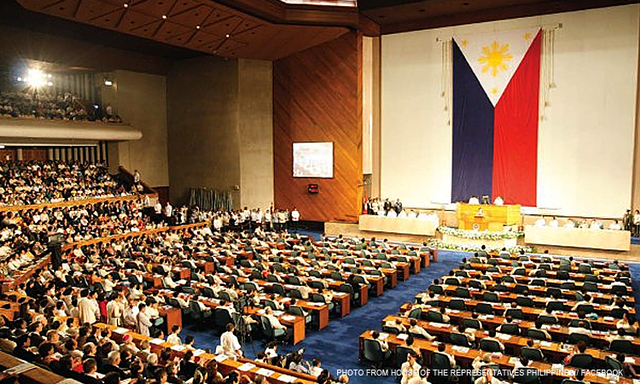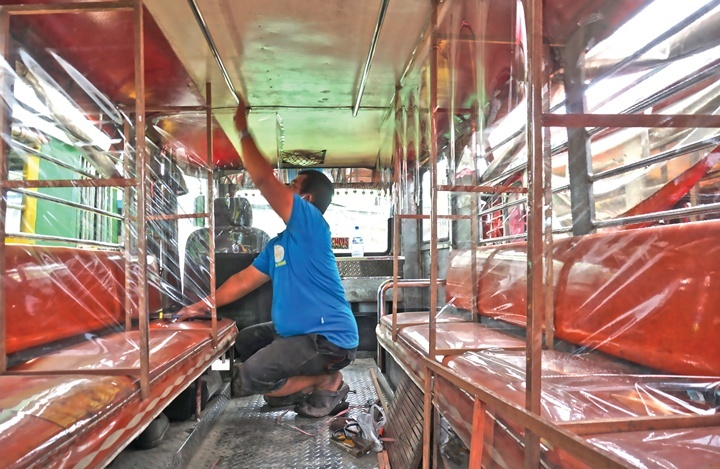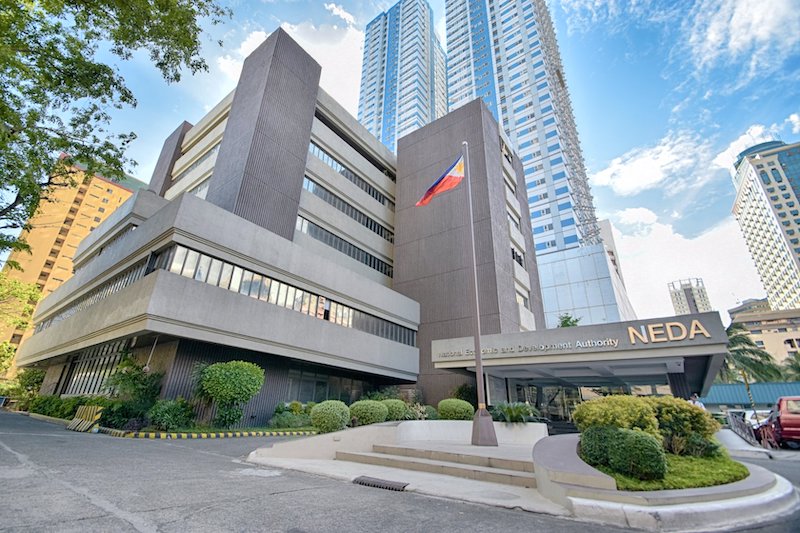The chairman of the House Committee on Constitutional Amendments on Wednesday said the panel is aiming to endorse for plenary debates the Resolution of Both Houses 2 (RBH 2), or the economic Charter change in the first week of February.
In a news conference, Ako Bicol Rep. Alfredo Garbin said the committee will conduct one to two more hearings before they transmit the Charter change resolution to the plenary.
“We still have [to conduct] one to two hearings and we’ll come out with the committee report which would exclusively deal with the economic provisions…. First week of February [our] plenary debates,” Garbin said.
“[With RBH 2] we want to send a signal to the business community that we are now open and that the restrictive policies will be lifted,” he added.
RBH 2, authored by Speaker Lord Allan Velasco, seeks to liberalize the restrictive economic provisions in the Constitution that prevent the Philippines from becoming fully competitive with its Asian neighbors.
The proposal amends Sections 2, 3, 7, 10 and 11 of Article XII (National Patrimony and Economy), Section 4 of Article XIV (Education, Science and Technology, Arts, Culture and Sports) and Section 11 of Article XVI (General Provisions) to add the phrase “unless otherwise provided by law.” The addition of this phrase will allow Congress to enact laws to free up the economy to foreign investors, or maintain the status quo.
1.6-million jobs
Meanwhile, the University of the Philippines’s Research and Extension Services Foundation-Regulatory Reform Support Program for National Development (UPPAF-RESPOND) said easing of the restrictive economic provisions of the 1987 Constitution is expected to create 1.6 million new jobs.
In a news statement, the lower chamber said the study was submitted by Dr. Enrico Basilio, RESPOND chief and professor at the UP National College of Public Administration and Governance, to the House of Representatives.
Basilio said as many as 1.6 million jobs would be created if the restrictive economic provisions of the Constitution are amended to open up the economy to foreign ownership, thereby reducing the country’s unemployment rate by 40 percent.
Basilio added easing the constitutional provisions that bars foreign ownership on certain industries would cut down joblessness rate by 40 percent to 5.1 percent from 8.7 percent recorded in October 2019.
“The new jobs will totally offset the annual job losses in domestic trade, finance, real estate and business services, and allow for significant job recovery rates in manufacturing [38 percent], construction [35 percent], other services including health and tourism [25 percent] and transport and storage [19 percent],” said the preliminary study by UPPAF-RESPOND.
The study said that foreign direct investments [FDI] “will increase by $57 million for every one unit point improvement in the Regulatory Restrictiveness Index [RRI] Equity Restriction score.”
The RRI measures the statutory restrictions on FDI of a country based on foreign equity limitations, screening or approval mechanisms, restrictions on the employment of foreigners as key personnel, and operational restrictions on branching, capital repatriation or land ownership, according to the Organization for Economic Cooperation Development.
“In the case of the Philippines, the removal of all Foreign Equity Restrictions (or allowing 100 percent foreign ownership in all economic activities) is equivalent to the improvement of the FER score of 0.281 in 2019 to zero which translates to a nominal increase of FDI amounting to $16.2 billion,” the study showed.
The additional FDI is more than triple the country’s current FDI up to October 2019, which amounts to $5.25 billion.
According to UPPAF-RESPOND, the additional FDI of $16.2 billion “will raise economic demand and total output that will eventually lead to the generation of up to 1.6 million new jobs,” thereby improving the country’s employment rate.

































